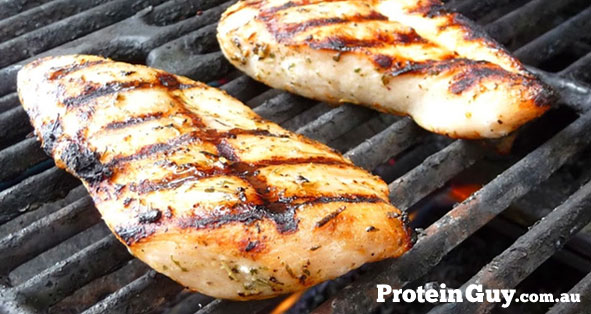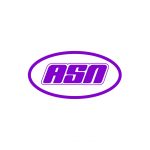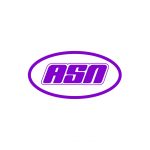So, you have decided to go onto a high protein diet because you read that magazine and you want to build more lean muscle, so what high protein foods are the best for your lean muscle gain?
I’ll let you know here.
Generally if you decide to go on a high protein diet of any sort there are many different kind of foods you can eat through the day to get your protein intake higher, this will also help you stay lean at the same time as putting on weight.
Most foods we eat have a protein level of some sort contained in it, so here I’ll outline the main higher protein foods that you can include in your meals and also I have thrown in a few carbohydrate sources for you that have a bit of protein content in them too.
If you want to incorporate some or all of these foods into your daily diet plan you will have no worries covering all the bases in your daily nutrition plan for protein, carbohydrates, fats and fibre.
These are mainly the foods I eat during the day, the only variance maybe a few different things for breakfast and also supplements that I take.
Beef
Beef has quite a high protein content compared to quite a lot of other protein food sources, it has great levels of Vitamin B, Creatine, Iron, Potassium, Calcium and it also beef has levels of CLA too.
There is nothing quite like a great steak meal, as a meal if it has a carbohydrate source like potatoes or sweet potatoes with it and vegetables you cover all the needs for you meal easily, I have beef or steak once a week currently but use to have it more often than that when I was training hard.
How much protein is in a 200gm steak or in 200gm of beef?
There is roughly about 20 grams of protein per 100 grams in the beef or steak you are eating.
Obviously it will be a little different for all the different types of cuts of beef and also taking into account if you are eating something like a T Bone Steak which has the bone still in it.
Brown Rice
Brown rice is a great Low GI carbohydrate source that will give you a sustained energy release throughout your day after your meals and more importantly, where it counts, it can give you plenty of energy in the tank to fuel your workouts.
Brown rice is basically the unrefined version of normal white rice and is considered a wholegrain.
Brown rice still has the hull and bran attached to it and can provide you with more calcium, magnesium, high fibre, selenium, potassium and a bit of extra protein too, to name a few additional nutritional benefits on top of the carbohydrate levels it has.
Another point to remember if you are adding brown rice into your diet rather than using white rice is that it is a lot more chewy and takes longer to cook as well, white rice is easy to eat and cook but has a slightly higher GI.
Cottage Cheese
Cottage cheese, what can you say, it not only tastes great as a high protein part of your diet plan, it can be used as a night time snack to help your muscles recover more efficiently through sleep as it takes a while for your body to digest.
It can also be added to your diet to increase your protein level in your meals if you need to.
Most cottage cheese is very rich in casein protein, as I said above with in regards to having a night time snack, your body breaks down the casein over a longer period than other proteins so you get a sustained release of nutrients into your body.
There are so many different types, varieties and brands of cottage cheese in the supermarkets these days, the best for you if you are using cottage cheese long term or often are the natural or organic types as these generally have the least additives in them, make sure you are reading the labels.
How much protein is there in cottage cheese?
You are looking at about 13 grams of protein per 100 grams of cottage cheese as a general average, again read the label of the cottage cheese you have purchased if you are unsure, this will have all the information on it that you will need.
For a quick and easy healthy lean muscle building diet snack you really can’t beat tuna and cottage cheese on a rice cake.
The hardest part, once you do start adding cottage cheese to your diet meals, is to stop using cottage cheese in your diet meals.
Eggs
Eggs, not only do they taste great and are packed with so many nutrients which includes protein, they are so easy to prepare too in so many different ways.
To tell you the truth, I could eat eggs everyday with every meal in some way or form, they are great little orbs of protein packed nutrients.
So how could I make high protein foods for your lean muscle gain diet suggestions without including eggs?
Each egg, depending on the size of the egg and also taking into account the way it is cooked has 5 to 6 grams of protein in it.
Eggs also contain iron, calcium, zinc, fatty acids (The good type) and much more.
You can look at using eggs in your meals instead of having a meat source for your protein as a change every now and then, with almost non-existent carbohydrate levels in eggs, they certainly do the job and punch above their weight.
Myself I generally use boiled eggs through the day and add these to my diet plan, mostly as they are easy to prepare and keep in the fridge.
Then weekends, when I have more time, I have scrambled eggs or use eggs in the high protein pancakes I make.
Chicken Breast
Chicken breast is one of the most used protein sources in many people high protein diet plans.
Chicken is used with beef and tuna as the number one protein source in most meals, chicken breasts and of course chicken meat in general contain levels of vitamins which include magnesium, potassium and more.
How much protein is there in chicken breasts?
In a chicken breast there is roughly 24 grams of protein per 100 grams of chicken meat.
So it comes down to the size of the chicken breast in regards to the protein level in it, on average when you buy a chicken breast from the supermarket they are the same size most times.
Most of the chicken breasts I get are about 60 or so grams and so they have about 17 grams of protein in them after they are cooked.
Chicken is one of those protein foods you can add to most of your main meals if you aren’t a red meat fan and be confident you are covering your protein required for your meal.
Chicken breast is also pretty easy to cook, well as easy as the red meats and fish too, it is easy to add to your daily meals and you can either eat chicken hot or cold after cooking.
Most times I will prepare mine on the barbeque and I have baked in the oven my fair share of chicken breasts over the years too when dieting.
Tuna or Fish
I’ve put tuna and fish together here as most of the easy to use, straight out of the can variety in supermarkets is tuna fish these days.
Of course you can have a fillet of different types of fish for a meal too, but this takes a bit more preparation.
How much protein is there in fish?
Most of the different varieties of fish and this includes tuna too are around the 25 gram to 30 gram of protein mark per 100 grams of volume, this will depend on the variety, how it is prepared, stored etc etc.
Tuna and fish in general contain a lot of different nutrients on top of the high protein levels they have, the extras they have are a vitamins, a good level of omega 3 fatty acids and also selenium is in there to name a few.
Myself, and this is for the ease of preparation have tuna out of the can nine times out of ten, we do have the odd fried salmon meal or baked fish meal too every couple of weeks.
Spinach
Spinach is pretty ultimate super green food for me at the moment, I eat it most days and plenty of it and you can add it into salads or just by itself during the day if you wish.
Spinach is a fantastic source of iron, calcium, chlorophyll, a good source of fibre and much more.
There is also a very small count of protein in spinach if you add it into your meals, it generally will sit around the 2.8 gram mark per 100 grams.
If I am rushed before heading out to work I throw a couple of handfuls of spinach into my lunchbox, I can then just put a can of tuna on top and eat as a quick and easy protein meal.
Broccoli
Broccoli, or as they are called in our house “little trees” are also, like spinach above, packed with nutrients.
Broccoli is a fantastic source of vitamins and minerals which also include vitamin C, K, A, B, there is also magnesium, potassium and broccoli is also high in fibre too.
How much protein is in broccoli?
The protein count per 100 grams of is around 4.2 grams.
There is also many ways you can cook broccoli, you can steam, boil or eat it raw in your daily meals.
I have eaten broccoli steamed, boiled and raw over the years myself.
Raw broccoli is definitely a lot more chewy, I’m not sure why I went down the eating broccoli raw path, but I’m positively sure it would’ve been an older bodybuilder that told me to eat it during dieting for a competition though, steamed is the way I eat broccoli most times these days.
Almonds
Almonds are great snack food for in between your meals or I also add almonds onto my salads or on top of my meat or fish meals too.
Almonds are regarded as high nutrient dense food, they cover so many bases in regards to protein, carbohydrate, fibre, vitamins, fats and minerals.
How much protein is there in an almond?
There is roughly 20 grams of protein in 100 grams of almonds, from memory I think it is around .25 grams of protein for one almond, so in 4 almonds you will get about 1 gram of protein.
I always carry around a small container of almonds through the day, a handful of these nuts every now and then if you are hungry doesn’t go astray and fills the gap in between your main meals.
Avocado
Avocado is a great food to have with everything, you can add avocado to any meal if you are following a high protein diet and avocados are high in good fats, vitamins, minerals and also have a high level of antioxidants contained in them.
How much protein is in avocados?
The protein count isn’t too high for avocados though which is a shame, they come in at about 1.9 grams of protein per 100 grams, but the other benefits of avocados in rounding out your diet plan far outweigh this lower protein level in them.
A thing to remember is the power of good fats in your diet as this can never be under estimated, if you are trying to stay lean and put on lean muscle at the same time, you need good fats in your diet in some way shape or form.
If I could I would be having avocado on and with everything, it is just one of those great additions to my meals, it comes down to price sometimes through and if they are in season, like anything that is good and popular avocado prices have gone through the roof at certain times of the year.
A final word on high protein foods for your lean muscle gain diet.
There you have it above, these are a few of the high protein foods I eat throughout the week to help recover after training and also keep healthy, these are intertwined with good carbohydrate sources too.
So I ask you, what is your favourite lean muscle food for a high protein diet?


